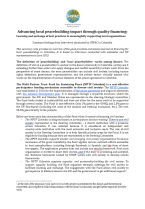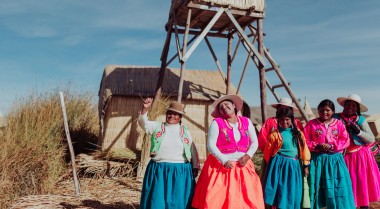
Advancing local peacebuilding impact through quality financing: Learnings from Colombia
Multilateral aid frameworks and bilateral donor commitments acknowledge the importance of and strive for more meaningful engagement with local actors, as without them, the impacts of aid investments will not be sustainable. Critical to this effort is strengthening the position of local actors in the aid system and rethinking how they are funded as the current way of working places them in a dependent position on INGOs.
Recent policy documents also call for increased coordination between donors within the UN system and across the HDP nexus. However, the link between donor coordination, resourcing, and integration of local peacebuilding actors has not been made and is underdeveloped in practice. As increased focus is placed on donor coordination, it is critical that its role in supporting local peacebuilding actors is clarified and that the role of those actors within coordination platforms is strengthened.
To contribute to the global thinking on how to strengthen the role of local peacebuilders in the global peacebuilding architecture, GPPAC has undertaken a series of consultations with representatives of the UN and embassies of donor countries to identify the good practices and lessons learned on financing for local peacebuilding in Colombia. Key findings include:
- The definition of 'peacebuilding' and 'local peacebuilders' varies among donors;
- The Multi-Partner Trust Fund for Sustaining Peace (MPTF Colombia) is a cost-effective, participatory funding mechanism accessible to diverse civil society;
- Bilateral support from the embassies requires an intermediary model;
- The localisation agenda in Colombia allows donors to input into inclusive national priorities;
- Convening platforms should be differentiated from coordination platforms.



